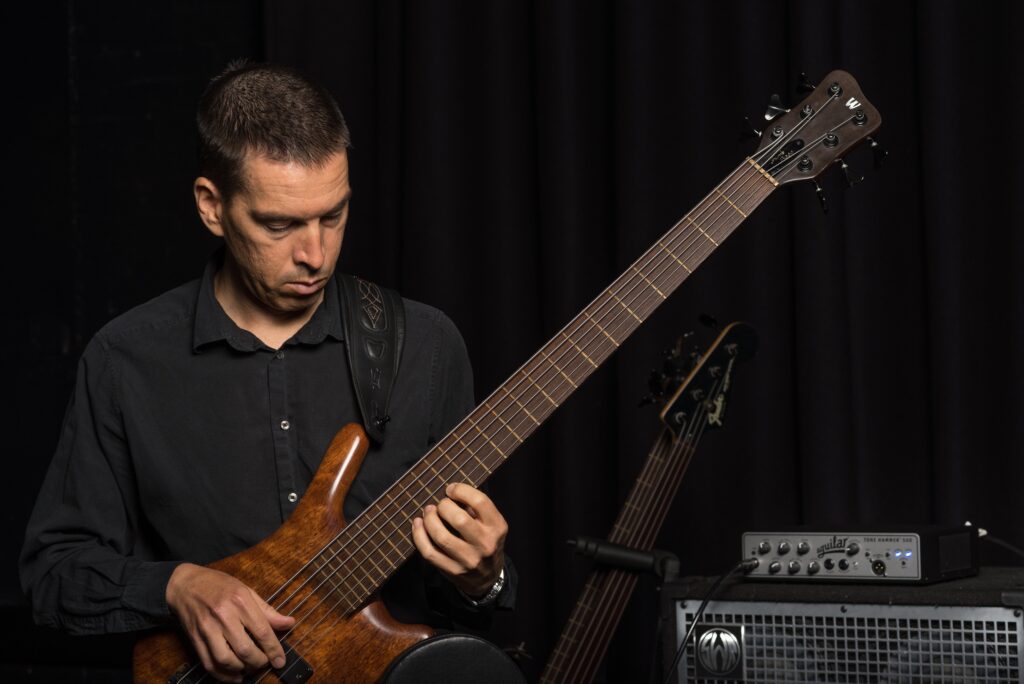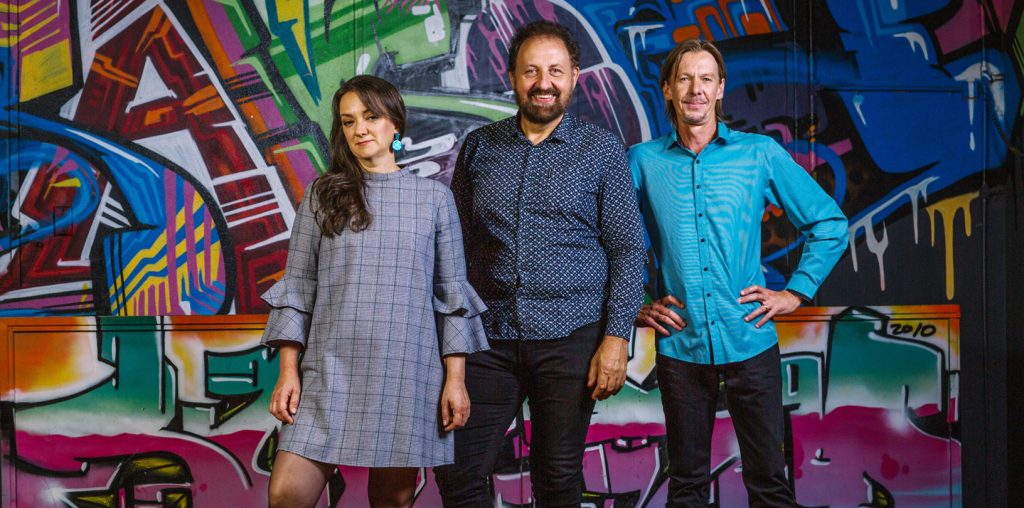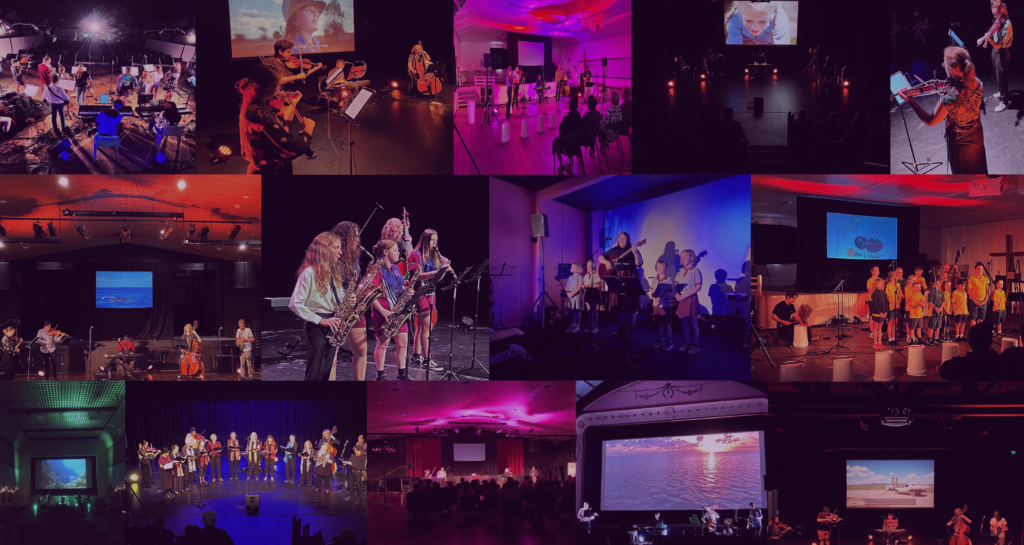Image by Ian Spence.
Spotlight on Our Friends: LOOPS
A conversation with Jonathan Dimond
Introduce yourself!
I am a multi-instrumentalist performer, composer, and educator. I mostly perform on electric bass guitars these days, though tabla and trombone have been the focus of my training in past years. My compositions, performances and collaborations demonstrate my deep connection with and respect for jazz, West European classical music, and other traditions from around the world, including Indian classical music. My music and research can be found on my website at: http://www.jonathandimond.com
I recently released a double album with Tripataka which can be found on our Bandcamp page at: https://tripataka.bandcamp.com
I grew up in Brisbane and knew the Topology gang from the days they were known as “Music for the heart and mind”. “Topology” is a better band name, and the ensemble certainly have grown up since those years, but that old name still resonates with me as it encapsulates the spirit of my own original composition. I left Brisbane in 1993 to study in Boston, USA, and returned for a few years to teach at the Qld Con, where I ran the jazz course from 1997, before returning to the USA in 2002. These days I live in Melbourne, which is much closer but I haven’t visited Brisbane since 2018! I run the Bachelor of Music course at Melbourne Polytechnic.
Next year marks 19 years since the release of Airwaves: 100 Years of Radio, what can you tell us about the upcoming performance?
The details have not yet been released, but I can say that, for those that have not heard this immersive piece, it is quite a roller-coaster ride which is a musical setting of so many of the happenings of the 20th Century. For those that are old enough to have heard our debut performance (!), it is such a richly multi-layered piece that it deserves repeated listens! I can also say that the piece is open to adaptation. When we took the project to the Singapore Arts Festival in 2011, I wrote a movement especially upon Lee Kuan Yew’s 1966 speech “Towards Enduring Future”.

We know music making is all about collaborating, how do you look at musical collaboration?
I think the role of collaboration is primary for me, and for groups like Topology, but I am not convinced it is this way for everyone. I say this to put the focus on what the essence of “collaboration” represents, rather than to be contraire! You see, some people collaborate and just end up sounding like an assemblage of musicians – possibly fine musicians, but still, a group of individuals. To me, Topology collaborates according to my preferred definition, which always involves an open mindset and a willingness to change or adapt to the new instruments/languages/traditions that they find themselves on stage or in the recording studio with. They seek to bring the best out of each other, but don’t play it safe such that everyone just plays according to their own previous behaviours and established skillset. I believe composition and improvisation can help drive this growth mindset. By carefully choosing repertoire, and learning to work with musical aspects in a spontaneous fashion, we can break out of an insular way of working and collaboration can really be responsive, interactive and delectably risky – all the perfect ingredients for engaging a human audience!
What would you say to someone considering a career in music?
Wow, deep breaths here (as my son is entering year 12…!). The music scene has changed fundamentally since I was growing up in Brisbane. At the risk of sounding like an “old fart” I am going to admit that the opportunities my young university students have today are but a microscopic fraction of what I had even when I was a teenager in Brisbane in the 1980s. These include the opportunities to learn, to be mentored in all kinds of fantastic musical apprenticeships, as well as to make money from one’s craft through performing and recording.
Does the public realise that an artist will get 0.003¢ after 1,000 streams of an original song on Spotify? I recently spent $6,000 on recording an album of original works, and if the 500 CDs pressed ever get sold we will be lucky to break even? The “music industry” to me gets a lot of attention and is where most of the fiscal activity is concentrated, but equally valuable in cultural terms is the musical ecosystem that brings together community, practice, continuous improvement, education, therapy, collaboration, experimentation, etc.
It would be hypocritical of me to not encourage a young person to follow their dreams, as that is what I did. However I would temper that encouragement by advising a dose of rationality – that a career in music needs to be approached with a broad enough suite of skills that will enable the person to adapt and develop complementary income streams to allow them to do what they love the most. I hear the weather is getting warmer in Finland…!




